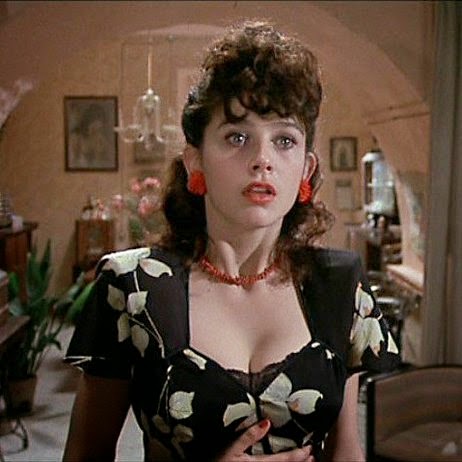Friday's guest Francesca Marciano starred in a number of Italian films prior to achieving success as a fiction writer and screenwriter.
Her credits include the virgin Carolina [pictured here, billed as "Francesca Marciani"] in Lina Wertmüller's outrageous 1975 film Seven Beauties, which was nominated for four Oscars.
Other film roles include the second-billed "Francesca" in Pupi Avati's The House of the Laughing Windows (1976) and Tutti defunti... tranne i morti (1977); and the Italian TV miniseries, La riva di Charleston (1978).
More about Marciano: http://www.albany.edu/writers-inst/webpages4/archives/marciano_francesca14.html
Read More......





